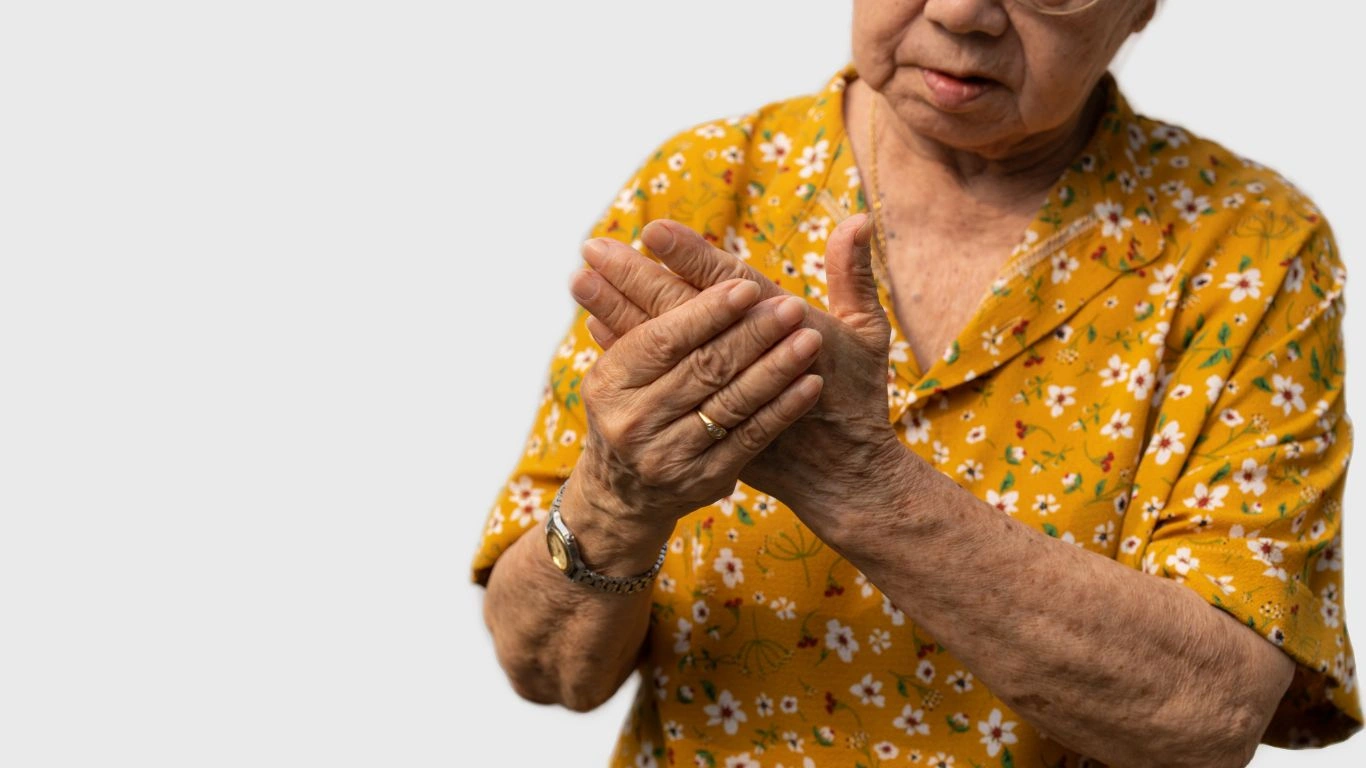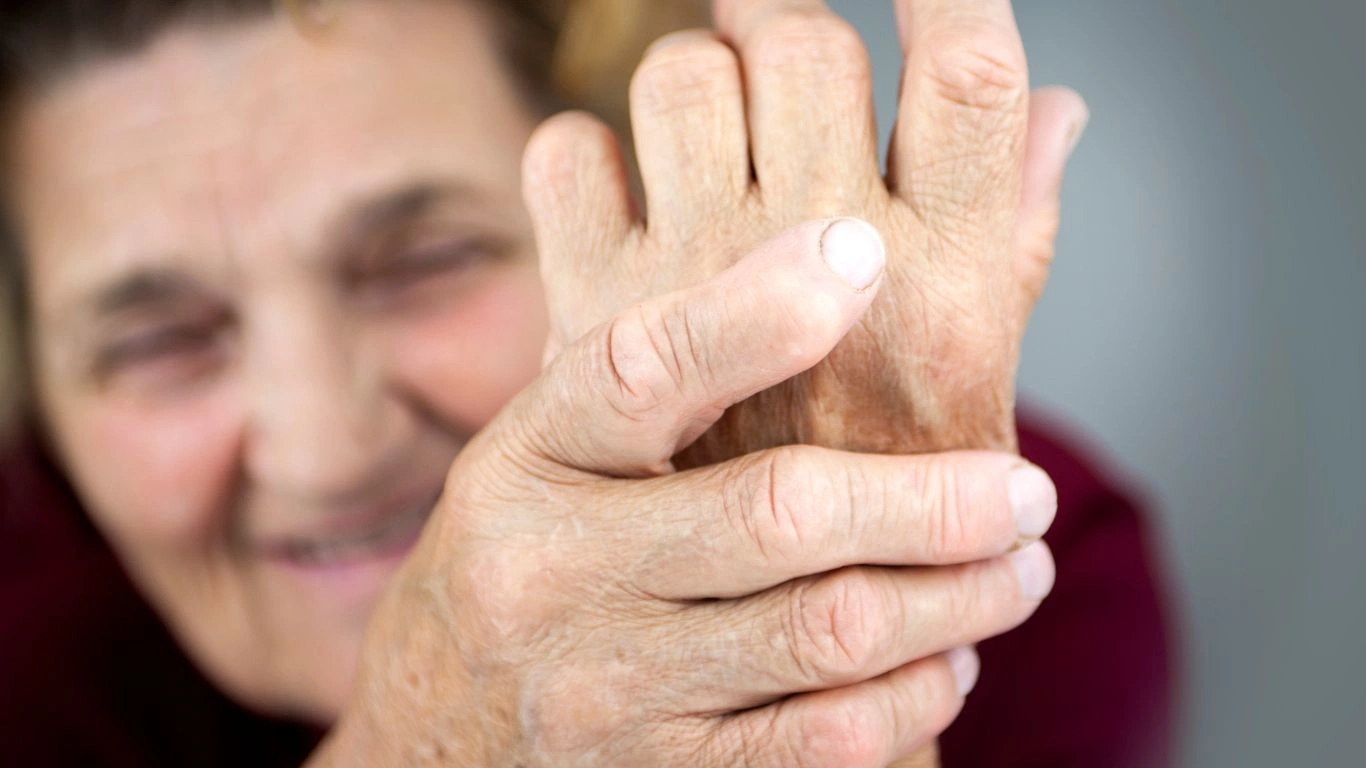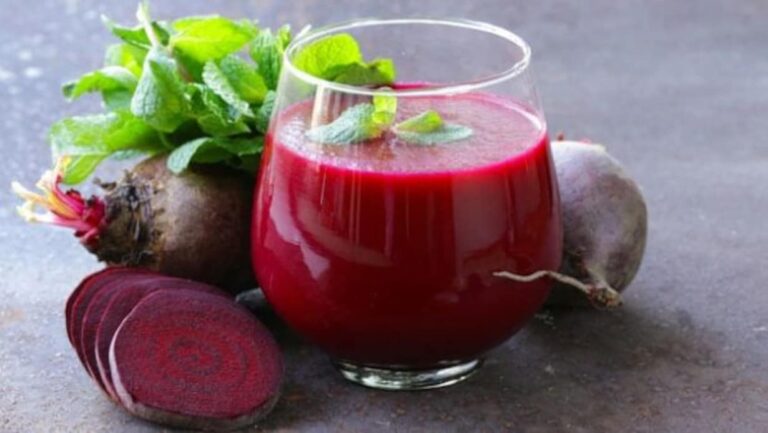Discover Natural Remedies for Rheumatoid Arthritis Relief
As a Rheumatology nurse practitioner, I’ve walked alongside so many patients who battle the daily stiffness, swelling, and pain that comes with rheumatoid arthritis (RA). And while medications are often a must-have in the toolbox, I’ve had countless conversations with folks asking, “Are there any natural remedies for rheumatoid arthritis that actually help?” The answer? Absolutely—but with a little nuance and some real-life experience to guide the way. Let’s dive into the world of nature-based relief strategies that go beyond the pill bottle.
Why Natural Remedies Deserve a Place in Your RA Toolkit

Now, I’ll be the first to say that natural remedies aren’t a magic cure, but they can absolutely support better outcomes and improve quality of life. Think of them as complementary players—like backup dancers who make the main show even better. Over the years, I’ve seen small changes turn into big wins for my patients when these natural strategies are used consistently.
Inflammation: The Core of RA and the Key Target for Natural Relief
Rheumatoid arthritis is driven by chronic inflammation. It’s your immune system doing way too much, and not in a good way. Unlike a sprained ankle that swells up for a few days and gets better, RA inflammation is long-lasting and systemic. So, if we want to use nature’s tools effectively, we need to focus on calming that inflammatory fire.
Here’s the good news: Mother Nature’s medicine cabinet is full of anti-inflammatory agents—foods, herbs, movements, and mind-body techniques that can ease that internal heat without harsh side effects.
Herbs and Supplements That Help (Backed by Research & Real Patients)

1. Turmeric (Curcumin)
Oh, turmeric—I call it the golden MVP of natural inflammation fighters. The active compound, curcumin, has solid research behind it. I’ve had patients add it to their diets or take it in supplement form (with black pepper extract for absorption), and they swear by the difference in stiffness and pain. Just be patient—it’s not an overnight fix.
2. Omega-3 Fatty Acids
Whether from fish oil or plant-based sources like flaxseed, omega-3s are powerhouses when it comes to joint support. I often recommend these to patients who can tolerate them because they not only reduce inflammation but may also offer cardiovascular protection—another concern with RA. Win-win.
3. Ginger
Much like turmeric, ginger is another warming root with anti-inflammatory superpowers. Some of my patients love sipping ginger tea daily, and a few even add fresh grated ginger to smoothies or meals. It’s gentle, soothing, and surprisingly effective for some folks.
4. Boswellia Serrata
Also known as Indian frankincense, this herb is lesser known but gaining traction. I’ve seen a few impressive cases where patients reported decreased joint pain and improved mobility within weeks of adding it to their routine. Just be sure to talk to a healthcare provider before mixing it with meds.
5. Vitamin D
Now here’s one that’s often overlooked. Many RA patients are low on vitamin D, and correcting that deficiency alone can sometimes ease joint pain. I always recommend testing levels first—guessing isn’t helpful—but supplementing appropriately can support immune function and bone health.
Anti-Inflammatory Diet: Food as Medicine

This is one area where the changes can be simple, yet the impact surprisingly big. I’ve had more than a few patients come back after a few weeks of cleaner eating and say, “I didn’t know I could feel this much better just from food.” That’s the power of eating for healing.
What to Add
- Colorful fruits and vegetables: Loaded with antioxidants and fiber
- Fatty fish: Think salmon, mackerel, sardines—rich in omega-3s
- Olive oil: A great anti-inflammatory fat
- Whole grains: Like quinoa, brown rice, oats (limit refined carbs!)
- Nuts and seeds: Almonds, walnuts, chia, flax
What to Cut Back On
- Processed foods: Especially those loaded with sugar or trans fats
- Red meats: These can promote inflammation if eaten in excess
- Refined carbs: White bread, pasta, sugary cereals
- Alcohol: Moderation is key—it can worsen symptoms for some
- Dairy: A trigger for a small subset of patients
I always tell patients: this isn’t about dieting or deprivation. It’s about finding what makes your body feel calmer and stronger. You don’t need to overhaul everything overnight. Start with swapping one meal a day, and build from there. Give your body the ingredients it needs to fight smarter, not harder.
Stress, Sleep, and Joint Health—More Connected Than You Think
This one often catches people off guard, but it’s such a crucial piece. Stress equals inflammation. Poor sleep equals inflammation. And guess what RA feeds off of? Yep, inflammation. So even though it might sound like fluff, getting stress and sleep under control can dramatically improve how you feel day to day.
Simple Mind-Body Practices That Work
- Meditation or deep breathing: 5–10 minutes daily can lower cortisol levels
- Gentle movement: Yoga, tai chi, or even slow walks—great for mind and body
- Sleep hygiene: Consistent bedtime, no screens before bed, magnesium supplements if needed
I’ve had patients who didn’t believe any of this mattered—until they tried it. One patient I remember vividly was skeptical but gave nightly breathwork a shot. Two weeks in, she was sleeping better and waking up with less morning stiffness. Coincidence? I don’t think so.
Movement Matters: Gentle Exercise That Supports Joint Health

If there’s one myth I’d love to bust for good, it’s the idea that people with RA should “rest more” and avoid movement. Sure, during a flare, it makes sense to dial it back. But avoiding exercise altogether? That’s a recipe for joint stiffness, muscle loss, and even more pain in the long run.
In my clinic, I always tell patients: movement is medicine. The key is finding the right type—the kind that supports your joints without overloading them. When done right, exercise boosts circulation, reduces stiffness, and even improves mood (and believe me, RA can take a toll there too).
Joint-Friendly Activities I Recommend Often
- Swimming or water aerobics: The buoyancy reduces joint stress—patients often feel like they’re floating out of pain.
- Chair yoga or gentle yoga: Stretches stiff joints and helps with balance. Bonus: it lowers stress hormones too.
- Walking: Sometimes underestimated, but a daily 20-minute walk works wonders. Just wear supportive shoes.
- Stretching routines: Even 5 minutes in the morning and before bed can keep things mobile.
One of my patients in her 60s started tai chi after we talked about it during a visit. She came back a month later and said, “I feel taller, stronger—and I’m sleeping better.” Movement truly transforms when it’s the right kind.
Detoxing Gently: Supporting the Body’s Natural Healing

Now, let’s talk detox—but not in the fad diet, lemon-water-for-three-days way. I’m talking about gentle, sustainable practices that help your body clear out inflammation-triggering waste and toxins over time.
RA often puts a burden on the liver, gut, and lymphatic system. Helping these systems function optimally can ease symptoms, even if the changes seem small on paper. Again, it’s the consistency that counts here—not extremes.
My Go-To Natural Detox Habits
- Hydration: Simple, but many folks forget it. Aim for half your body weight in ounces of water daily.
- Support the liver: Dandelion tea, milk thistle supplements, and cruciferous veggies like broccoli and kale help liver detox pathways.
- Dry brushing: A favorite among my crunchy granola patients! Helps move lymph and exfoliates too.
- Epsom salt baths: Magnesium absorbs through the skin and can calm inflammation and improve sleep.
- Limit environmental toxins: Choose natural cleaning products, reduce plastic use, and be mindful of skincare ingredients.
I’ve seen several patients turn a corner when they cleaned up their personal environment—less brain fog, better energy, fewer flare-ups. One woman in particular stopped using heavily fragranced laundry detergent and noticed her morning stiffness improved within two weeks. Coincidence? Maybe. But worth trying? Definitely.
Alternative Therapies That Pair Well With Traditional RA Care

Not everything helpful comes in a pill or supplement. In fact, some of the most soothing and healing options for rheumatoid arthritis come from therapies that have been around for centuries. And yes—I’ve personally seen them make a difference when used thoughtfully and consistently.
Acupuncture
This ancient practice may not be everyone’s cup of tea, but I’ve had RA patients swear by its ability to reduce pain and improve energy. The needles stimulate specific points that help regulate the immune response and reduce inflammation. A few weekly sessions can kickstart relief—especially during a flare.
Massage Therapy
Many people overlook massage because they think it’ll hurt—but with the right therapist (preferably someone trained in inflammatory conditions), massage can ease muscle tension, improve circulation, and even help with joint alignment. Plus, who doesn’t benefit from a little stress reduction?
Chiropractic and Osteopathic Adjustments
This one’s controversial in the RA world, and I only recommend it with caution and a provider who understands autoimmune conditions. But gentle adjustments can sometimes relieve spinal misalignment and improve mobility—especially when RA affects the neck or back.
Energy Healing & Reiki
I’ll be honest: this sounded woo-woo to me early in my career. But after watching one patient who combined Reiki with mindfulness and saw reduced flares for months, I’ve kept an open mind. For those drawn to it, energy work may offer calming, grounding effects that support healing in a less tangible—but very real—way.
Building a Personalized Natural Routine: It’s Not One-Size-Fits-All
Here’s where I really lean on my clinical experience. No two people respond the same way to natural remedies for rheumatoid arthritis. One patient’s miracle supplement might do nothing for the next person. And that’s okay. The goal is to build a custom routine that fits your body, your lifestyle, and your needs.
Tips for Crafting a Routine That Sticks
- Start slow: Don’t try five new things at once. Pick one change, track how you feel, then layer on the next.
- Keep a journal: I love this for identifying patterns—did that ginger tea help with morning pain? Did skipping sugar reduce swelling?
- Check interactions: Always double-check herbs and supplements with your provider—especially if you’re on DMARDs or biologics.
- Honor your body’s rhythms: Some days, rest is the most healing thing. Other days, a brisk walk works wonders.
One of the most powerful tools you can develop is body intuition—that sense of what helps you and what doesn’t. I love helping patients fine-tune that awareness. When you listen to your body and respond with care, nature has a funny way of showing up with support.
And hey, I know it’s not always easy. Life gets busy, flares happen, and motivation comes and goes. But with the right guidance and a little trial and error, you can absolutely build a lifestyle that eases pain, boosts energy, and helps you thrive alongside RA—not just survive it.
Nutrition That Nurtures: Eating to Ease RA Symptoms

If there’s one area I could wave a magic wand over for every RA patient, it would be nutrition. Seriously—what we eat makes such a difference, and it’s often one of the most empowering places to start making changes.
Back when I first started working in rheumatology, I underestimated the impact of diet. But over time, patient after patient showed me otherwise. One woman cut out processed sugar and gluten, and within weeks, her energy levels climbed and her joint swelling dropped. It’s not always a quick fix, but it’s powerful fuel for healing.
Anti-Inflammatory Foods to Lean Into
- Fatty fish: Think wild salmon, sardines, and mackerel. Omega-3s are like a soothing balm for inflamed joints.
- Leafy greens: Kale, spinach, and Swiss chard are packed with antioxidants and magnesium.
- Berries: Blueberries and strawberries bring polyphenols to the table—those natural inflammation fighters.
- Turmeric and ginger: I suggest adding them to soups, smoothies, and teas. They’re gentle but potent.
- Olive oil: Cold-pressed and high-quality—great for cooking or drizzling over salads.
Every body is different, so while one person might thrive on a Mediterranean-style plan, another might benefit from an elimination diet guided by a functional nutritionist. I always say: it’s less about perfection and more about progress.
Supplements That May Support RA Naturally

Let’s talk about supplements—because I get asked about them constantly. And it makes sense. When you’re trying to avoid unnecessary meds or reduce side effects, the idea of a natural boost is appealing.
That said, this is definitely one of those “talk to your provider first” categories, especially if you’re on immunosuppressants or biologics. But here’s what I’ve seen patients benefit from most often:
Commonly Recommended Natural Supplements for RA
- Omega-3 fatty acids: From fish oil or algal sources—research shows they help reduce joint tenderness and stiffness.
- Curcumin: The active compound in turmeric. It’s best absorbed when paired with black pepper extract (piperine).
- Vitamin D3: Many people with autoimmune diseases are low in this critical vitamin. Testing and proper dosing are key.
- Boswellia (Indian frankincense): An herbal extract that may reduce pain and inflammation.
- Probiotics: Gut health and immunity go hand-in-hand. A healthy microbiome = reduced systemic inflammation.
I’ve seen one patient go from daily ibuprofen use to just occasional use after incorporating turmeric and fish oil consistently for three months. It’s not a miracle cure—but paired with other lifestyle habits, it can be incredibly supportive.
Mind-Body Connection: Don’t Underestimate the Mental Side
I’ve said it before, and I’ll say it again: rheumatoid arthritis doesn’t just affect the joints. It messes with your mood, your energy, your sleep, and your identity. That’s why mind-body practices are so essential—yet so often overlooked.
Patients who learn to manage stress better often report fewer flares. And that’s not just anecdotal—it’s supported by research too. Chronic stress pumps out cortisol and inflammatory cytokines, both of which aggravate RA symptoms.
Simple Mind-Body Habits I Recommend
- Guided meditation or mindfulness apps: Even 10 minutes a day can retrain your nervous system.
- Breathwork or box breathing: Helps calm the body in flare-up moments. I’ve used this myself during hectic clinic days.
- Journaling: Not just emotional release—also helps you track triggers, patterns, and progress.
- Therapy: Whether it’s cognitive behavioral therapy or trauma-informed care, mental health support makes a real difference.
One of my longtime RA patients began combining weekly yoga nidra (a deeply relaxing form of guided meditation) with her other treatments. She calls it her “reset button,” and swears by how it stabilizes her mood and reduces pain perception.
Trusting the Process: You’re in the Driver’s Seat
If you’ve made it this far in the article, take a second and give yourself some credit. You’re showing up for your health, looking for answers, and taking an active role in managing RA. And that’s what it’s all about.
Living with rheumatoid arthritis can feel unpredictable, overwhelming, and even lonely at times. But the truth is, you don’t have to wait for perfect health to start feeling better. Natural remedies for rheumatoid arthritis aren’t about replacing medications entirely—they’re about restoring balance, giving your body tools to heal, and feeling empowered in the process.
From what I’ve seen, the people who do best are the ones who stay curious, open, and consistent. They treat their body with kindness, give themselves grace when things aren’t perfect, and find a rhythm that works for them.
As someone who’s walked alongside many RA journeys, I can tell you this: healing is possible. It might not be linear, and it won’t look the same for everyone, but there is so much you can do—naturally, gently, and powerfully.
References
- National Institutes of Health
- Health.com
- Arthritis Foundation
- National Center for Biotechnology Information
- Cleveland Clinic
Disclaimer
This article is for informational purposes only and is not intended as a substitute for professional medical advice, diagnosis, or treatment. Always consult with a licensed healthcare provider or your personal physician before starting any new supplements, dietary changes, or therapies, especially if you are already taking medications for rheumatoid arthritis or other autoimmune conditions. The experiences and suggestions shared are based on clinical knowledge and patient case insights but should be personalized with medical guidance.

Tarra Nugroho is a dedicated Nurse Practitioner with a strong foundation in family and preventive care. She brings both compassion and clinical expertise to her practice, focusing on patient-centered care and health education. As a contributor to Healthusias.com, Tarra translates medical knowledge into clear, empowering articles on topics like women’s health, chronic disease management, and lifestyle medicine. Her mission is simple: help people feel seen, heard, and informed—both in the clinic and through the content she creates. When she’s not caring for patients, Tarra enjoys weekend hikes, plant-based cooking, and curling up with a good health podcast.






